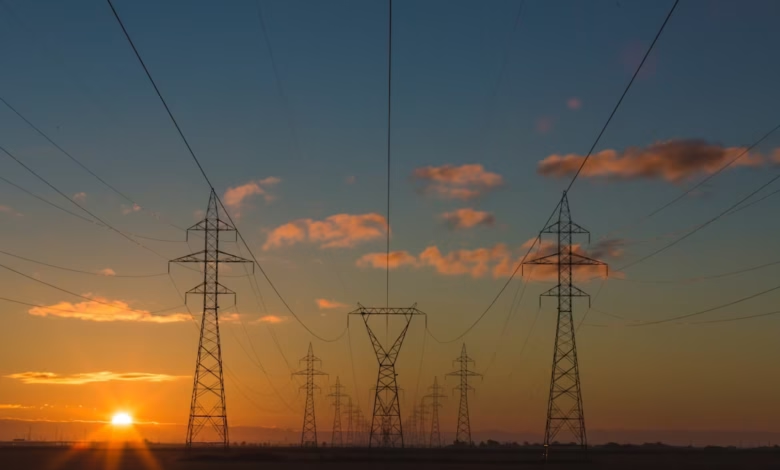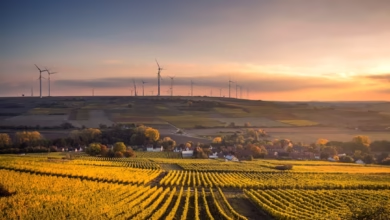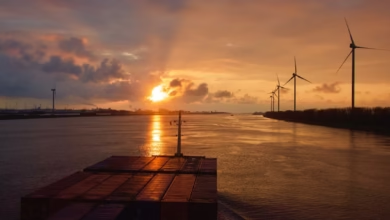Navigating Energy in Transportation: The Future of Electric Vehicles, Biofuels, and Renewable Energy Solutions

As the world grapples with the pressing challenges of climate change, the transportation sector finds itself at a pivotal crossroads. Energy in transportation is no longer solely dictated by traditional fossil fuels; instead, it is evolving into a dynamic landscape that embraces renewable energy sources and innovative technologies. The shift towards electric vehicles (EVs) and sustainable alternatives, such as biofuels and hydrogen energy, reflects a broader energy transition aimed at enhancing energy efficiency and security. This article delves into the crucial role of renewable energy and fossil fuels in shaping the future of transportation, examining the latest innovations in electric vehicles that are propelling this energy revolution. Additionally, we will explore the potential of biofuels and hydrogen energy as sustainable solutions for energy transportation. Join us as we navigate global energy trends and policies that are driving investments in smart grids, energy storage, and offshore energy, ultimately redefining how we think about energy economics and our collective responsibility towards a greener future.
- 1. The Role of Renewable Energy and Fossil Fuels in the Future of Transportation
- 2. Innovations in Electric Vehicles: Driving the Energy Transition
- 3. Exploring Biofuels and Hydrogen Energy: Sustainable Alternatives for Energy Transportation
1. The Role of Renewable Energy and Fossil Fuels in the Future of Transportation
The future of transportation is increasingly being shaped by the dual forces of renewable energy and fossil fuels. As global energy trends shift towards sustainability, the role of renewable energy sources—such as solar power, wind energy, and hydropower—becomes ever more critical. These green energy alternatives offer a pathway to reduce carbon emissions and combat climate change, particularly in the transportation sector, which is traditionally heavily reliant on fossil fuels.
In the context of energy transition, electric vehicles (EVs) are at the forefront of this shift. By utilizing renewable energy sources for charging, EVs can significantly enhance energy efficiency and reduce reliance on fossil fuels. As energy markets evolve, there is a growing emphasis on integrating energy storage solutions, smart grids, and distributed energy systems to support the widespread adoption of EVs. This innovation not only improves energy security but also facilitates better management of energy imports and exports, leading to a more resilient energy policy framework.
Additionally, bioenergy and hydrogen energy are emerging as vital components in the transportation landscape. Biofuels derived from organic materials can serve as a bridge in the transition away from fossil fuels, while hydrogen fuel cells present an exciting opportunity for clean energy transportation. Both technologies require substantial energy investment and ongoing energy R&D to optimize their efficiency and effectiveness.
Fossil fuels are not expected to vanish overnight; rather, they will likely play a diminishing role as we move towards a more sustainable energy future. Policies that encourage carbon capture and thermal energy innovations will be crucial in mitigating the environmental impact of remaining fossil fuel usage. Overall, the interplay of renewable energy and fossil fuels will define the evolution of energy transportation, shaping the future of mobility while addressing the pressing challenges of energy economics and climate change.
2. Innovations in Electric Vehicles: Driving the Energy Transition
The innovations in electric vehicles (EVs) are playing a pivotal role in driving the energy transition, shifting away from traditional fossil fuels towards cleaner, renewable energy sources. As governments and industries respond to climate change and energy security concerns, the integration of cutting-edge technologies in the EV sector is transforming energy transportation and promoting energy efficiency.
One of the most significant advancements is in energy storage solutions. The development of high-capacity batteries has greatly enhanced the performance and range of electric vehicles, making them more appealing to consumers. These innovations not only focus on improving battery life and reducing charging times but also aim to increase the sustainability of battery production through the use of recycled materials and greener manufacturing processes. This aligns with global energy trends that emphasize reducing carbon emissions and enhancing energy efficiency.
Moreover, smart grids are emerging as a crucial component in the integration of EVs into the energy markets. By enabling real-time communication between energy providers and consumers, smart grids facilitate the optimal use of renewable energy sources like solar power and wind energy. This technology allows for better management of energy loads, ensuring that electric vehicles can be charged during off-peak hours when renewable energy is abundant, thus supporting the overall energy transition.
Hydrogen energy is also gaining traction as a viable alternative to conventional energy sources for transportation. Innovations in hydrogen fuel cell technology are making it possible for electric vehicles to utilize hydrogen as a clean fuel, resulting in zero emissions. This development not only diversifies the energy sources available for transportation but also reinforces energy security by reducing dependency on fossil fuels.
Another aspect of energy innovations is the emergence of bioenergy as a sustainable fuel source. By converting organic materials into biofuels, we can reduce greenhouse gas emissions and promote energy independence. This aligns with energy policy goals aimed at fostering a more sustainable energy landscape while also addressing climate change.
As energy investments continue to flow into R&D for electric vehicles and supporting infrastructure, the future of energy transportation looks promising. The ongoing collaboration between governments, private sectors, and research institutions is vital in driving these innovations forward. By embracing distributed energy solutions and leveraging offshore energy resources, we can create a more resilient and sustainable energy system that meets the demands of a rapidly changing world.
In summary, the innovations in electric vehicles are not only enhancing the accessibility and efficiency of energy transportation but also paving the way for a comprehensive energy transition that prioritizes renewable energy, energy security, and climate change mitigation.
3. Exploring Biofuels and Hydrogen Energy: Sustainable Alternatives for Energy Transportation
As the world grapples with the impacts of climate change, the need for sustainable alternatives in energy transportation has never been more critical. Biofuels and hydrogen energy are two promising solutions that can significantly reduce our reliance on fossil fuels while promoting energy security and efficiency.
Biofuels, derived from organic materials such as crops, waste, and algae, offer a renewable energy source that can be integrated into existing transportation infrastructures. They can be produced through various processes, including fermentation and transesterification, and can be utilized in conventional combustion engines with minimal modifications. By leveraging bioenergy, we not only enhance energy storage capabilities but also contribute to energy markets that prioritize environmentally friendly options. This transition to biofuels is supported by various energy policies aimed at reducing greenhouse gas emissions, making it a viable choice for energy transportation.
On the other hand, hydrogen energy presents a unique opportunity for the energy transition. As one of the most abundant elements in the universe, hydrogen can be generated through multiple methods, including electrolysis powered by renewable sources like solar power and wind energy. When used in fuel cells, hydrogen generates electricity, with water being the only byproduct, making it an exceptionally clean energy source. The development of hydrogen infrastructure is key, as it supports the growth of electric vehicles (EVs) and other green energy technologies. Innovations in hydrogen energy storage solutions and smart grids will be essential for maximizing the efficiency of this energy source in transportation.
Both biofuels and hydrogen energy contribute to the broader conversation about energy economics and the need for energy R&D investments. As global energy trends shift towards more sustainable practices, stakeholders in the energy sector must prioritize these alternatives to ensure a resilient and diversified energy portfolio. By exploring these renewable energy sources, we can enhance energy efficiency, mitigate the impacts of climate change, and support energy exports and imports that align with a sustainable future.
In summary, biofuels and hydrogen energy stand at the forefront of the energy transition, offering sustainable alternatives that can help bridge the gap between traditional fossil fuel dependency and a greener, more energy-efficient future. As we continue to innovate and invest in these technologies, we move closer to realizing a transportation sector that is both environmentally responsible and economically viable.
In conclusion, the future of energy in transportation hinges on a multifaceted approach that embraces both innovative technologies and sustainable practices. As we transition from traditional fossil fuels to cleaner alternatives, the integration of renewable energy sources such as solar power, wind energy, and hydropower becomes essential. Electric vehicles (EVs) are at the forefront of this energy transition, driving advancements in energy efficiency and storage solutions that enhance energy security and reduce our carbon footprint.
Moreover, exploring biofuels and hydrogen energy presents promising pathways to diversify our energy markets and bolster energy exports while addressing climate change challenges. By investing in energy R&D, smart grids, and carbon capture technologies, we can create a more resilient and sustainable energy infrastructure. As global energy trends continue to evolve, energy policy will play a crucial role in guiding the shift towards green energy and ensuring that our systems remain adaptable to future needs.
Ultimately, the collaboration between traditional energy sectors and emerging technologies will be key to achieving a balanced and sustainable energy landscape in transportation, paving the way for a cleaner, more efficient future. Embracing this energy transition not only addresses immediate environmental concerns but also positions us favorably in the evolving dynamics of energy economics and global energy markets.





